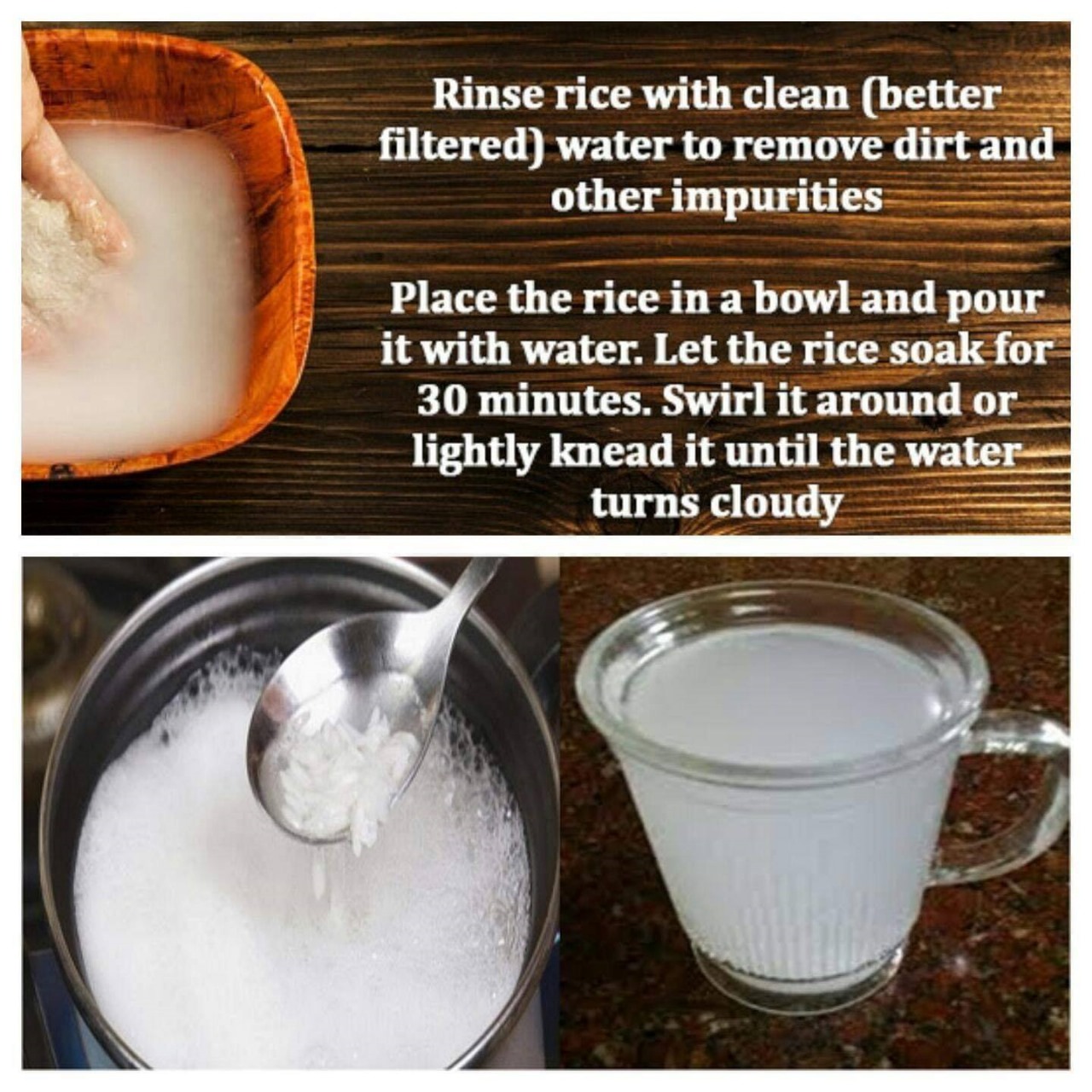ADVERTISEMENT
### 1. **Cooking Rice and Grains**
The most common way rice water is used in the kitchen is when cooking rice or other grains. When cooking rice, you can save the water left over after rinsing or cooking the rice to use in other dishes. It contains a bit of the rice’s starch and nutrients, making it a good base for soups or other recipes that need a flavorful liquid.
If you’re looking to boost the flavor and nutrient content of your rice or grains, try using rice water in place of plain water. You can substitute it for cooking quinoa, barley, or oats. This adds a subtle creaminess and depth to your grains, turning even a simple bowl of oatmeal or quinoa into a hearty, satisfying meal.
### 2. **Making Soups and Broths**
Rice water can be used as a flavorful broth base in soups, stews, and sauces. Its mild flavor and starchy content make it an excellent thickening agent for broths. If you’ve ever made a homemade vegetable or chicken broth, you can add rice water to enhance the texture, giving it a slightly thicker consistency without the need for additional thickeners like flour or cornstarch. Rice water also has a mild, naturally sweet flavor that adds an extra layer of depth to your soups.
A great example is using rice water to make a comforting creamy soup. After cooking your rice, set aside the rice water and use it to create a creamy, velvety soup. Just add some vegetables, herbs, and spices of your choice, and the rice water will help thicken and enrich the broth. This trick is particularly useful for making vegan or dairy-free soups since the starch in rice water gives a creamy consistency without the need for cream or milk.
### 3. **Using Rice Water as a Natural Sweetener**
Rice water can also be used as a natural sweetener in cooking and baking. It has a mild, slightly sweet flavor that makes it an ideal substitute for sugar or syrups in some recipes. If you’re preparing dishes like rice pudding, oatmeal, or smoothies, try adding rice water for a hint of sweetness. This is especially beneficial for those who are looking to reduce their intake of refined sugars while still enjoying a touch of sweetness in their food.
You can also use rice water to sweeten beverages like tea, coffee, or homemade fruit juices. Simply simmer the rice water with a bit of fruit or natural sweeteners, such as honey or stevia, to create a deliciously refreshing drink.
### 4. **Creating Rice Water-Based Smoothies**
If you’re looking to make a nutrient-packed smoothie with a base that’s not only healthy but also rich in vitamins, try incorporating rice water into your smoothies. Blend rice water with fruits like bananas, berries, or mangoes to create a deliciously creamy, naturally sweet beverage that’s easy to digest and full of nutrients.
Rice water’s natural starch makes it an excellent ingredient for adding thickness to smoothies, while its light, refreshing taste complements a wide variety of fruit and vegetable combinations.
## Rice Water for Beauty: A Skin and Hair Care Powerhouse
Rice water isn’t just good for cooking — it’s a powerhouse ingredient for beauty and wellness too. For centuries, it has been used in skincare routines to promote healthy skin and hair. Women in ancient Japan, China, and Korea have used rice water for its skin-soothing and anti-aging properties, and it remains a staple ingredient in many beauty products today. Let’s explore how rice water can benefit your skin and hair.
### 1. **Rice Water for Skin Care**
Rice water is packed with nutrients such as amino acids, antioxidants, and vitamins, which help nourish the skin, reduce inflammation, and promote a youthful glow. Here are some ways to incorporate rice water into your skincare routine:
#### 1.1 **Skin Brightening and Even Skin Tone**
Rice water contains an enzyme called “inositol” which is known for its skin-brightening properties. Regular use of rice water can help reduce the appearance of dark spots, hyperpigmentation, and even out skin tone. To use rice water for brightening, soak a cotton pad in chilled rice water and gently apply it to your face after cleansing. Leave it on for 15–20 minutes before rinsing off. This method can help lighten dark spots and provide a natural glow.
1.2 **Anti-Aging Benefits**
The antioxidants in rice water, such as vitamin E, help fight free radicals that contribute to the signs of aging, including wrinkles and fine lines. The antioxidants also help protect the skin from damage caused by sun exposure and pollution. To use rice water for anti-aging, apply it as a toner using a cotton pad after cleansing your face. This can tighten pores, reduce puffiness, and keep the skin looking youthful and fresh.
For Complete Cooking STEPS Please Head On Over To Next Page Or Open button (>) and don’t forget to SHARE with your Facebook friends
